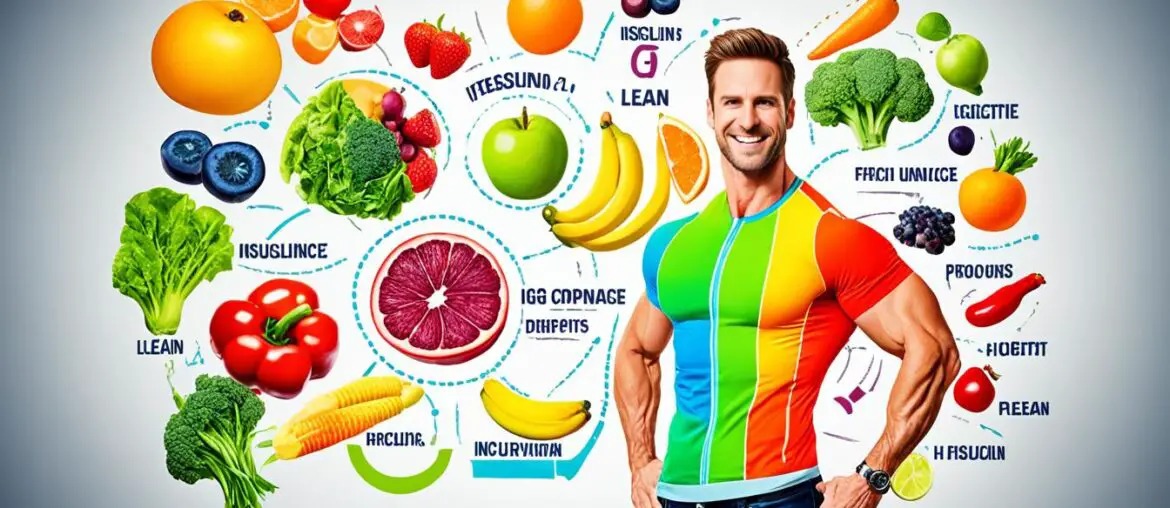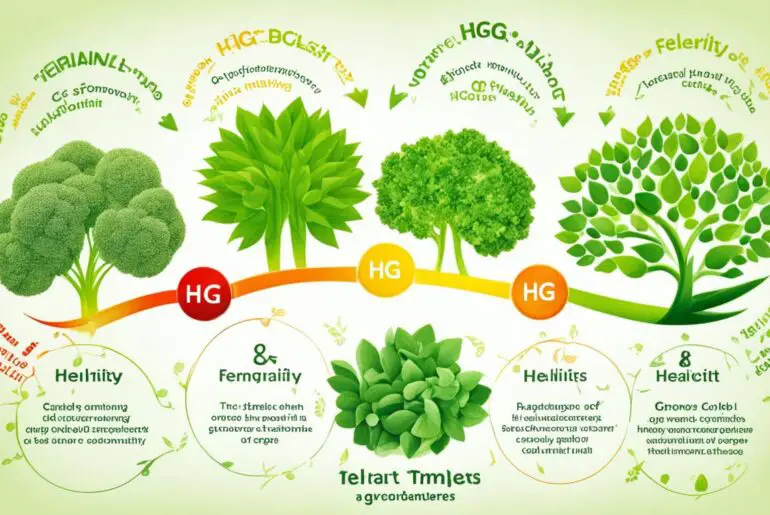Insulin resistance is a common health condition that affects millions of people worldwide. It increases the risk of developing prediabetes and type 2 diabetes, making it crucial to take preventive measures. Many diets claim to improve insulin sensitivity, but one that has gained significant attention is the HCG diet. However, does it really live up to its promises? Is it a safe and effective approach to weight loss and managing insulin resistance? Let’s uncover the truth and explore the science behind the HCG diet.
Before we dive into the details, it’s important to understand what insulin resistance is. Insulin is a hormone produced by the pancreas that helps regulate blood sugar levels. When our bodies become resistant to the effects of insulin, it leads to elevated blood sugar levels and various health complications. Adopting healthy eating habits and making lifestyle changes are known to enhance insulin sensitivity and reduce the risk of developing diabetes.
The HCG diet, which stands for human chorionic gonadotropin, is a low-calorie diet that involves the use of HCG injections to stimulate weight loss. Developed by Albert Simeons in the 1950s, it gained popularity as a hormone-based approach to burning stored body fat. But is there any scientific evidence to support these claims? Let’s find out.
Key Takeaways:
- The HCG diet is often recommended for weight loss and improving insulin sensitivity.
- Insulin resistance increases the risk of prediabetes and type 2 diabetes.
- Healthy lifestyle choices, including regular exercise and a balanced diet, can help prevent insulin resistance.
- The HCG diet is a low-calorie diet that involves the use of HCG injections.
- There is no scientific evidence to support the effectiveness of the HCG diet.
What is the HCG diet?
The HCG diet is a popular low-calorie diet that aims to stimulate weight loss by utilizing human chorionic gonadotropin (HCG) injections. Developed by Albert Simeons in the 1950s, the HCG diet asserts that it can help individuals burn stored body fat and achieve their weight loss goals. However, it is crucial to note that there is no scientific evidence to support these claims, and the Food and Drug Administration (FDA) has not approved the use of HCG for weight loss.
While the HCG diet may seem appealing due to its promise of rapid weight loss, it is important to approach it with caution. The diet typically involves severely restricting calorie intake alongside HCG injections. Participants are typically required to consume only 500-800 calories per day, which is significantly lower than the recommended daily calorie intake for most adults.
| Pros of the HCG Diet | Cons of the HCG Diet |
|---|---|
|
|
It is important to consider the potential risks and drawbacks of the HCG diet before embarking on this weight loss journey. Severe calorie restriction can lead to nutrient deficiencies, fatigue, irritability, and other adverse effects. Additionally, the lack of scientific evidence supporting the efficacy of the HCG diet raises concerns about its overall safety and long-term effectiveness.
Before starting any diet or weight loss program, it is always recommended to consult with a healthcare professional or registered dietitian. They can provide personalized guidance and help create a sustainable and well-rounded approach to weight loss that focuses on healthy eating, regular physical activity, and overall well-being.
Foods to include in the HCG diet
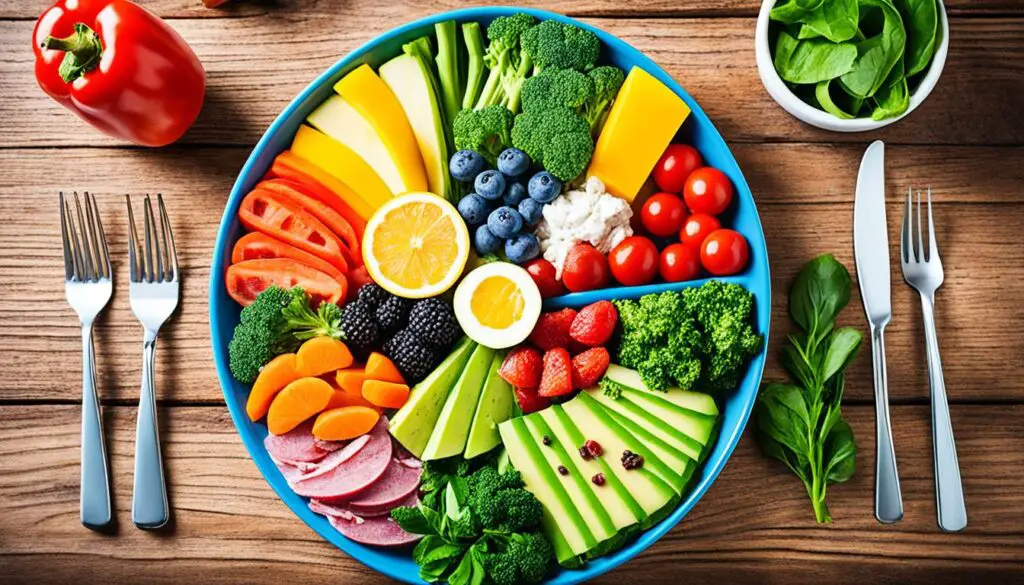
The HCG diet is a low-calorie diet that emphasizes specific food choices to facilitate weight loss. Here are the key foods allowed on the HCG diet:
Lean Proteins:
- Lean ground beef
- Pork loin
- Turkey
- Skinless chicken breast
- Baked white fish
Non-Starchy Vegetables:
- Cauliflower
- Spinach
- Mushrooms
- Zucchini
- Cucumber
- Celery
Limited Fruits:
- Watermelon
- Honeydew
- Cantaloupe
- Berries
These food choices provide essential nutrients while keeping calorie intake low. Lean proteins supply vital amino acids for muscle maintenance and repair, while non-starchy vegetables offer fiber, vitamins, and minerals. Limited fruits provide natural sugars and antioxidants.
By incorporating these food choices into your HCG diet plan, you can create meals that are both satisfying and in line with the diet’s restrictions. Remember to consult with a healthcare professional or registered dietitian before starting any new diet or weight loss program.
The safety of the HCG diet
When considering the safety of the HCG diet, it is essential to understand the potential risks and concerns associated with this approach. The HCG diet involves severe calorie restriction, which can lead to nutrient deficiencies and pose health risks.
The FDA does not approve the use of HCG for weight loss, and they caution against the use of over-the-counter HCG products. This lack of approval highlights the potential dangers associated with the diet.
Some of the side effects commonly reported by individuals following the HCG diet include fatigue, irritability, depression, and fluid buildup. In more severe cases, there is a risk of developing blood clots, which can be life-threatening.
The Impact of Calorie Restriction
One of the main concerns with the HCG diet is the extreme calorie restriction it involves. By consuming very low calories, often as low as 500-800 per day, the body is deprived of essential nutrients needed for optimal functioning. This can lead to nutrient deficiencies and affect overall health.
Nutrient deficiencies can have various negative effects on the body, including weakened immune function, muscle loss, fatigue, and impaired cognitive function. It’s important to prioritize a balanced diet that provides all necessary nutrients for overall well-being and to consult with a healthcare professional for personalized recommendations.
The FDA’s Stance
The FDA does not approve the use of HCG for weight loss and warns against over-the-counter HCG products. The diet can also have side effects such as fatigue, irritability, depression, fluid buildup, and potentially serious complications like blood clots.
The FDA’s stance on the HCG diet is clear: they do not endorse or support its use for weight loss. This is because there is insufficient scientific evidence to prove the effectiveness and safety of the HCG diet. It is always important to prioritize evidence-based approaches to health and weight loss.
Considering Safer Alternatives
Instead of opting for the potentially risky HCG diet, there are safer alternatives available for weight loss and overall health improvement. These alternatives involve making sustainable lifestyle changes that promote long-term success.
A balanced diet that includes a variety of nutrient-dense foods, regular physical activity, and behavioral changes can help achieve and maintain a healthy weight. Working with a healthcare professional or registered dietitian can provide the guidance and support needed for personalized weight loss plans.
| Risks and Concerns of the HCG Diet | Safer Alternatives |
|---|---|
| – Severe calorie restriction | – Balanced diet |
| – Nutrient deficiencies | – Regular physical activity |
| – Unapproved by the FDA | – Behavioral changes |
| – Side effects like fatigue, irritability, depression, fluid buildup, and blood clots | – Sustainable lifestyle changes |
Effectiveness of the HCG diet
While the HCG diet may lead to short-term weight loss due to severe calorie restriction, there is a lack of scientific evidence to support its effectiveness in achieving long-term weight loss. The diet has not been shown to provide sustainable results and may even lead to weight regain over time.
Although some individuals may experience initial success on the HCG diet, it is important to note that this weight loss is primarily attributed to the reduced calorie intake rather than any specific action of HCG hormone injections. The diet restricts daily calorie intake to as low as 500 calories, which is significantly below the recommended intake for most individuals.
This severe calorie restriction can cause a rapid initial drop in weight, but it is not a sustainable or healthy approach to long-term weight management. Furthermore, the HCG diet does not promote the adoption of healthy eating habits or lifestyle changes that are essential for maintaining weight loss and overall well-being.
A lack of scientific studies supporting the effectiveness of the HCG diet raises concerns about its long-term sustainability. It is important to rely on evidence-based approaches for weight loss that focus on balanced nutrition, regular physical activity, and behavior changes.
It’s important to choose weight loss strategies that prioritize overall health and well-being, rather than relying on fad diets or quick fixes. Sustainable weight loss is best achieved through a combination of healthy eating habits, increased physical activity, and long-term lifestyle changes.
It is always recommended to consult with a healthcare professional or a registered dietitian before starting any weight loss program, including the HCG diet. They can provide personalized guidance and support, taking into account individual needs and goals.
Risks and concerns of the HCG diet
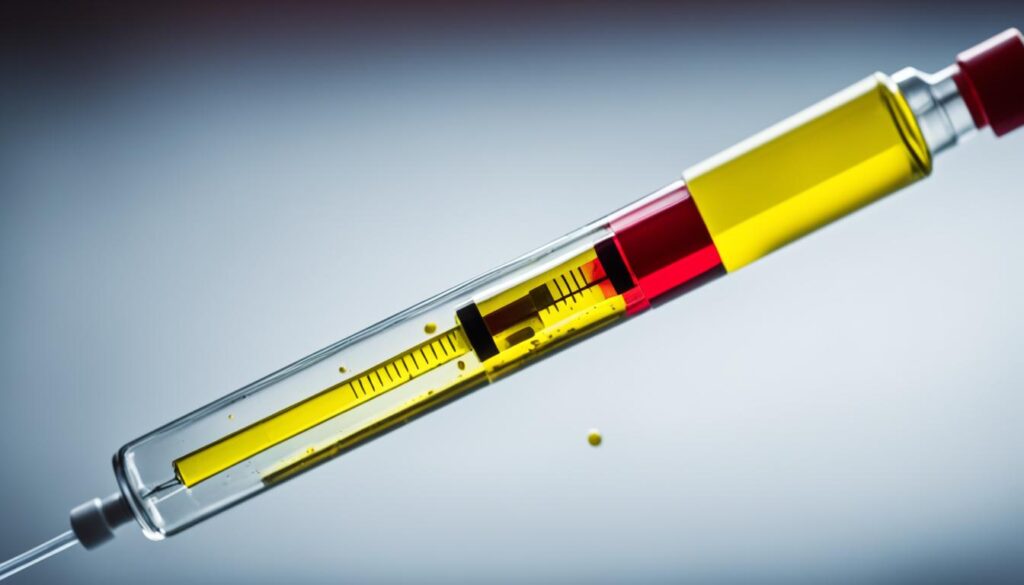
The HCG diet poses several risks and concerns that individuals should be aware of before considering this weight loss approach. It is important to understand these potential dangers to make informed decisions about one’s health and well-being.
Nutrient Deficiencies
One of the risks associated with the HCG diet is the potential for nutrient deficiencies. The diet restricts calorie intake to a dangerously low level, which can lead to inadequate consumption of essential vitamins, minerals, and macronutrients. This can result in nutrient imbalances and deficiencies, negatively impacting overall health.
Disordered Eating Patterns
The severe calorie restriction and limited food choices of the HCG diet can also contribute to the development of disordered eating patterns. The strict guidelines and focus on rapid weight loss may lead to an unhealthy preoccupation with food, weight, and body image. This can increase the risk of developing eating disorders, such as anorexia or bulimia.
“The HCG diet’s extreme calorie restriction and rigid rules can trigger an unhealthy mindset towards food and body image, potentially leading to disordered eating habits.”
Potential for Other Diseases
Following the HCG diet may increase the risk of developing other diseases. The severe calorie restriction can weaken the immune system, making individuals more susceptible to infections and illnesses. Moreover, inadequate nutrient intake can exacerbate existing health conditions and hinder the body’s ability to fight off diseases.
HCG Injections Risks
Another concern associated with the HCG diet is the use of HCG injections. These injections may cause pain, bruising, and infection at the injection sites. It is crucial to ensure proper hygiene and technique when administering these injections to minimize the risk of complications.
Alternatives to the HCG diet for weight loss
While the HCG diet may be popular among some individuals for weight loss, there are safer and more sustainable approaches that can help you achieve your weight loss goals. Instead of relying on drastic calorie restriction and hormone injections, consider incorporating these alternatives into your weight loss journey:
- Eat a balanced diet: Focus on consuming nutrient-dense foods such as fruits, vegetables, whole grains, lean proteins, and healthy fats. A balanced diet provides the necessary nutrients for your body while promoting weight loss.
- Control portion sizes: Pay attention to serving sizes and practice mindful eating. By eating reasonable portions, you can still enjoy your favorite foods without overindulging.
- Regular exercise: Engage in physical activities that you enjoy, such as walking, swimming, cycling, or dancing. Regular exercise not only helps burn calories but also improves overall health and well-being.
- Make long-term lifestyle changes: Focus on adopting healthy habits that are sustainable in the long run. This includes prioritizing sleep, managing stress, staying hydrated, and avoiding processed foods and sugary beverages.
By incorporating these sustainable approaches into your lifestyle, you can achieve weight loss in a healthy and balanced way. Remember, it’s always advisable to consult with a healthcare professional or a registered dietitian to develop a personalized weight loss plan that suits your specific needs.
Implementing these alternatives to the HCG diet not only supports your weight loss goals but also promotes the development of healthy habits for long-term success. Embark on a journey towards better health by embracing sustainable approaches and establishing healthy habits that will benefit you in the long run.
Impact of exercise on insulin resistance and weight loss

Regular exercise plays a vital role in improving insulin sensitivity, reducing insulin resistance, and promoting weight loss. It offers multiple benefits that contribute to overall health and can help prevent or manage diabetes. By engaging in physical activity, you can lower blood sugar levels, burn calories, and trim body fat, leading to improved insulin function and better weight management.
Exercise recommendations for individuals with insulin resistance include a combination of aerobic exercise, strength training, and regular physical activity throughout the day. Aerobic exercises, such as brisk walking, cycling, or swimming, elevate your heart rate and increase insulin’s effectiveness, aiding in glucose absorption by muscles. Strength training exercises, such as weightlifting or resistance band workouts, build muscle mass, which enhances insulin utilization and improves metabolism.
The Role of Exercise in Insulin Sensitivity
Physical activity enhances insulin sensitivity by stimulating glucose uptake in the muscles, reducing the reliance on insulin for glucose transport. It also helps to lower fasting blood sugar levels and improves the body’s ability to manage blood sugar fluctuations after meals. Regular exercise can contribute to long-term weight loss, which further improves insulin sensitivity and reduces the risk of diabetes and related complications.
In addition to its immediate effects on blood sugar control, exercise has a positive impact on several metabolic processes that influence insulin resistance. It can improve lipid profiles by increasing HDL cholesterol (the “good” cholesterol) and reducing triglyceride levels. Exercise also aids in maintaining a healthy blood pressure and reduces systemic inflammation, both of which are linked to insulin resistance and an increased risk of cardiovascular disease.
Sample Exercise Routine
Here’s an example of a well-rounded exercise routine for individuals looking to improve their insulin sensitivity and promote weight loss:
| Exercise Type | Duration |
|---|---|
| Aerobic Exercise (brisk walking, cycling, swimming) | 30-60 minutes, 5 days a week |
| Strength Training (weights, resistance bands) | 2-3 non-consecutive days a week |
| Regular Physical Activity (incorporate movement throughout the day) | At least 150 minutes per week |
It’s important to consult with a healthcare professional or a certified fitness trainer before starting any new exercise program, especially if you have pre-existing medical conditions or haven’t been physically active for a while. They can provide personalized recommendations and ensure that your exercise routine aligns with your specific needs and abilities.
Remember, consistency is key when it comes to exercise. Aim for gradual progress and make exercise a part of your lifestyle. By incorporating regular physical activity into your routine, you can effectively improve insulin sensitivity, support weight loss efforts, and reduce the risk of developing diabetes.
Importance of weight loss in insulin resistance management

Weight loss plays a crucial role in managing insulin resistance and reducing the risk of developing diabetes and related health complications. When it comes to insulin resistance, excess body weight, especially around the abdominal area, can contribute to increased insulin resistance. Losing weight can improve insulin sensitivity, allowing the body to utilize insulin more effectively and regulate blood sugar levels.
Even a modest weight loss of 5-7% can have significant benefits in improving insulin resistance. This can be achieved through a combination of healthy eating, regular physical activity, and behavior changes.
Healthy eating involves creating a well-balanced diet that includes a variety of nutrient-dense foods. Focus on consuming whole grains, lean proteins, fruits, vegetables, and healthy fats. Avoid processed foods, sugary drinks, and foods high in saturated fats and added sugars.
Regular physical activity is key to achieving and maintaining weight loss. Engage in exercises that you enjoy, such as walking, swimming, cycling, or aerobic classes. Aim for at least 150 minutes of moderate-intensity exercise or 75 minutes of vigorous-intensity exercise per week, along with strength training exercises twice a week.
Behavior changes are also essential for sustainable weight loss. This involves identifying and modifying unhealthy habits, such as emotional eating or sedentary behaviors. Seek support from a healthcare professional or a registered dietitian who can provide guidance and assistance tailored to your specific needs.
Remember, weight loss is not only about physical appearance but also about improving overall health and reducing the risk of diabetes and other health complications associated with insulin resistance. Prioritize your health and well-being by adopting a healthy lifestyle that includes a balanced diet, regular exercise, and positive behavior changes.
Early monitoring and prevention of insulin resistance
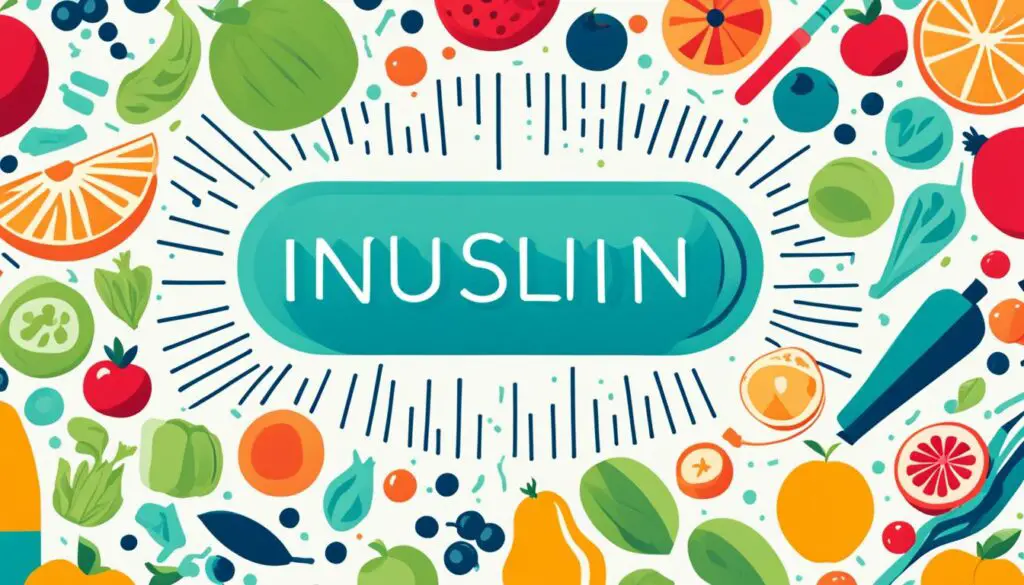
Early detection and monitoring of insulin resistance are crucial to prevent its progression to prediabetes and type 2 diabetes. By identifying insulin resistance in its early stages, healthcare providers can intervene with appropriate interventions and lifestyle modifications.
To detect insulin resistance, regular check-ups with a healthcare provider are essential. During these check-ups, blood tests can be performed to measure fasting blood glucose levels, insulin levels, and other markers of insulin resistance. These tests help identify individuals who are at risk or have early signs of insulin resistance.
Once insulin resistance is detected, it is important to take preventive measures to manage and reverse the condition. Lifestyle changes play a significant role in preventing and managing insulin resistance. These changes include maintaining a healthy weight, following a balanced diet, and engaging in regular physical activity.
When it comes to maintaining a healthy weight, it is important to focus on sustainable weight loss through healthy eating and portion control. A balanced diet that includes a variety of nutrient-dense foods such as lean proteins, whole grains, fruits, vegetables, and healthy fats can help improve insulin sensitivity and prevent insulin resistance.
Regular physical activity is also essential in preventing insulin resistance. Engaging in aerobic exercises, such as brisk walking, jogging, cycling, or swimming, helps improve insulin sensitivity and glucose regulation. Strength training exercises, such as weightlifting or resistance training, can also be beneficial for increasing muscle mass and improving insulin sensitivity.
“Prevention is better than cure,” as the saying goes. By making healthy lifestyle choices, individuals can reduce their risk of developing insulin resistance and its associated complications. Early detection and intervention provide an opportunity to prevent or manage insulin resistance effectively.
Key takeaways:
- Early detection of insulin resistance is crucial to prevent progression to prediabetes and type 2 diabetes.
- Regular check-ups and blood tests help identify individuals at risk or with early signs of insulin resistance.
- Lifestyle changes, such as maintaining a healthy weight, following a balanced diet, and engaging in regular physical activity, can help prevent or manage insulin resistance.
- Prevention through healthy lifestyle choices is key in reducing the risk of developing insulin resistance and its associated complications.
Conclusion
In conclusion, the HCG diet is not recommended for weight loss and improving insulin sensitivity. This is due to the lack of scientific evidence supporting its effectiveness, as well as the safety concerns and potential risks associated with the severe calorie restriction and use of HCG injections.
Instead, individuals seeking to manage insulin resistance and promote overall health should focus on safer and more effective alternatives. These include following a balanced diet that includes lean proteins, non-starchy vegetables, and limited fruits, while controlling portion sizes. Regular exercise, including aerobic exercise and strength training, is also crucial for improving insulin sensitivity and achieving sustainable weight loss.
Consulting with a healthcare professional is essential for personalized advice and guidance in managing insulin resistance. They can provide specific recommendations tailored to individual needs and goals, ensuring a safe and effective approach to weight loss and improved insulin sensitivity.
FAQ
What is the HCG diet?
The HCG diet is a low-calorie diet that involves the use of human chorionic gonadotropin (HCG) injections to stimulate weight loss. It was developed by Albert Simeons in the 1950s, who claimed that it allowed participants to burn stored body fat. However, there is no scientific evidence to support these claims, and the FDA has not approved the use of HCG for weight loss.
What foods are allowed in the HCG diet?
The HCG diet allows for limited food choices, including lean proteins such as lean ground beef, pork loin, turkey, skinless chicken breast, and baked white fish. Non-starchy vegetables like cauliflower, spinach, mushrooms, zucchini, cucumber, and celery are also allowed. Limited fruits like watermelon, honeydew, cantaloupe, and berries are included in the diet.
Is the HCG diet safe?
The HCG diet is not considered safe as it involves severe calorie restriction, which can lead to nutrient deficiencies. The FDA does not approve the use of HCG for weight loss and warns against over-the-counter HCG products. The diet can also have side effects such as fatigue, irritability, depression, fluid buildup, and potentially serious complications like blood clots.
Is the HCG diet effective for long-term weight loss?
There is a lack of scientific evidence to support the effectiveness of the HCG diet for long-term weight loss. While some individuals may experience short-term weight loss on the diet due to severe calorie restriction, it is not sustainable. The diet has not been shown to provide long-term results and may even lead to weight regain.
What are the risks and concerns of the HCG diet?
The HCG diet carries several risks and concerns, including the potential for nutrient deficiencies due to limited food choices. The severe calorie restriction can also lead to disordered eating patterns and increased risk of developing other diseases. The use of HCG injections can cause pain, bruising, and infection at the injection sites.
Are there alternatives to the HCG diet for weight loss?
Yes, there are safer and more sustainable alternatives to the HCG diet for weight loss. These include eating a balanced diet, controlling portion sizes, regular exercise, and making long-term lifestyle changes. It is important to consult with a healthcare professional or registered dietitian to develop a personalized weight loss plan.
How does exercise impact insulin resistance and weight loss?
Regular exercise is beneficial for improving insulin sensitivity, reducing insulin resistance, and promoting weight loss. It helps lower blood sugar levels, trim body fat, and increase the effectiveness of insulin. Exercise recommendations include a combination of aerobic exercise, strength training, and regular physical activity throughout the day.
How important is weight loss in managing insulin resistance?
Weight loss plays a crucial role in managing insulin resistance and reducing the risk of developing diabetes and related health complications. Even a modest weight loss of 5-7% can have significant benefits. Sustainable weight loss is achieved through a combination of healthy eating, regular physical activity, and behavior changes.
How can insulin resistance be monitored and prevented?
Early monitoring and detection of insulin resistance is important to prevent its progression to prediabetes and type 2 diabetes. Regular check-ups with a healthcare provider and appropriate blood tests can help identify insulin resistance early. Lifestyle changes such as maintaining a healthy weight, eating a balanced diet, and being physically active can help prevent or manage insulin resistance.

